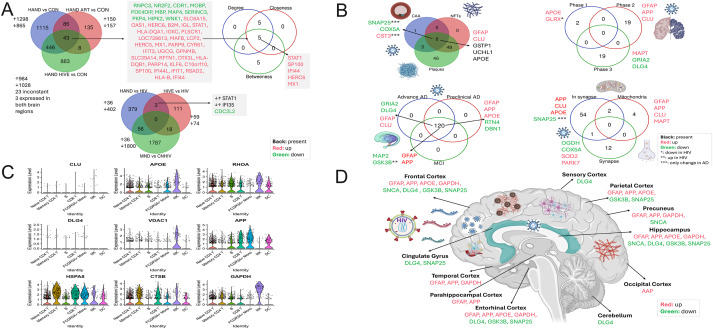
New genetic insights into HIV-associated neurocognitive disorder and Alzheimer's disease


HIV-associated neurocognitive disorder (HAND) is a central nervous system complication of HIV infection that affects cognitive, behavioral, and motor functions. The pathogenesis of HAND and its possible association with Alzheimer's disease (AD) remain unclear. This study used genomic data to reveal molecular mechanisms underlying HAND and key HAND biomarkers, with a focus on identifying new genetic variants, miRNAs, and transcription factors. We analyzed genomic studies, genome-wide association studies, and single-cell RNA sequencing datasets from cerebrospinal fluid and brain samples of individuals with HAND. Our objectives were to identify biomarkers associated with HAND and AD, validate them, and explore their interactions with genetic variants, miRNAs, and transcription factors. Our findings demonstrate significant decreases in synapse-related biomarkers and increases in immune system biomarkers in HAND. Key biomarkers, including APOE, RHOA, DLG4, APP, and GAPDH, were consistently altered across various datasets. Single nucleotide polymorphisms such as MTND4P3 [rs4718789-T], RNA5SP231 [rs4718789-T], and MSH6 [rs2098242-T] were identified as significant contributors to HAND pathogenesis, as were miRNAs hsa-miR-16-5p, hsa-miR-320a, and hsa-miR-335-5p. Transcription factors THRA and NEUROD6 were also implicated in HAND. Altered expression of synapse-related and immune system biomarkers underscores the complex interplay between neurodegeneration and inflammation in HAND. The identified biomarkers and genetic variants offer potential avenues for further research and therapeutic development.
